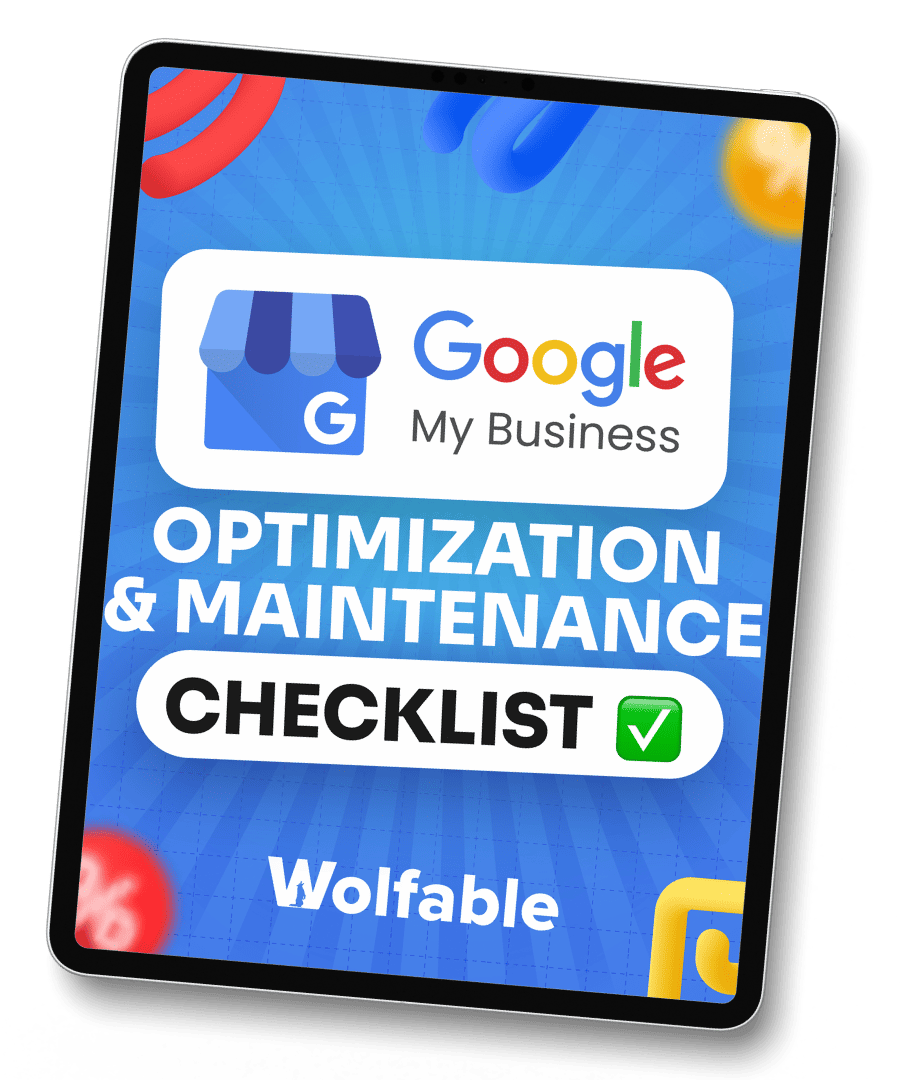Wraps up in 5 Minutes
Introduction
If you're in healthcare marketing, you already know how quickly the industry can change.
As we move into 2025, the healthcare industry continues to evolve at an unprecedented pace, bringing both exciting opportunities and new challenges for marketers.
The intersection of technology, changing patient expectations, and evolving healthcare delivery models is reshaping how healthcare organizations connect with their audiences.
Whether you're managing marketing for a large hospital network, a specialty clinic, or a private practice, understanding and adapting to the latest trends isn't just helpful—it's essential for growth and sustainability in today's healthcare marketplace.
In this comprehensive guide, you'll discover the top healthcare marketing trends that are set to dominate 2025.
Top 10 Healthcare Marketing Trends of 2025
As we explore the most influential healthcare marketing trends 2025, you'll discover how these innovations are reshaping patient engagement and healthcare delivery.
These trends in healthcare marketing aren't just theoretical concepts—they're practical solutions that forward-thinking healthcare organizations are already beginning to implement.
1. AI-Driven Marketing Revolution
The AI revolution isn't just knocking at healthcare's door—it's already transformed how you can connect with patients.
In 2025, artificial intelligence has become the cornerstone of healthcare digital marketing trends, offering unprecedented possibilities for personalization and efficiency in your marketing efforts.
You can now leverage AI to analyze vast amounts of patient data and create highly targeted marketing campaigns that resonate with specific patient segments.
Imagine having an AI system that automatically adjusts your messaging based on patient behavior, demographics, and healthcare needs. This level of personalization wasn't possible just a few years ago.
AI-powered chatbots and virtual assistants are becoming increasingly sophisticated, handling everything from appointment scheduling to answering complex healthcare questions. These tools now understand medical terminology and can provide accurate, compliant responses while maintaining a human-like conversation flow.
2. Smart Patient Journey Design
Understanding and optimizing the patient journey has emerged as one of the critical trends in healthcare marketing in 2025.
Smart patient journey design goes beyond simple mapping—it's about creating an intelligent, responsive pathway that adapts to each patient's unique needs and preferences.
You can now use advanced analytics to track and understand every touchpoint in your patient's journey, from their first Google search to post-treatment follow-up. This comprehensive view helps you identify and eliminate friction points that might be causing patient drop-off or dissatisfaction.
The smart patient journey incorporates predictive analytics to anticipate patient needs before they arise.
For example, your systems can now automatically trigger appointment reminders, educational content, and preventive care recommendations based on individual patient profiles and behavior patterns.
This proactive approach not only improves patient outcomes but also strengthens patient loyalty to your healthcare organization.
3. Multi-Channel Patient Acquisition
In healthcare technology marketing, relying on a single channel to attract patients is no longer sufficient.
As one of the significant new trends in healthcare marketing, multi-channel patient acquisition has become essential for healthcare providers who want to maintain a competitive edge.
Successful patient acquisition now requires a seamless presence across various platforms where your potential patients spend their time. This means coordinating your messaging across social media, email, search engines, mobile apps, and traditional marketing channels.
The key is ensuring that these channels work together harmoniously rather than operating in silos.
What makes this trend particularly powerful is the ability to track and attribute patient conversions across different channels. You can now understand which combination of touchpoints leads to the best patient acquisition results.
For instance, a patient might first discover your practice through a social media ad, research your services on your website, read reviews on healthcare platforms, and finally schedule an appointment through your mobile app.
To make the most of multi-channel acquisition, you'll need to maintain consistent messaging while adapting your content format for each platform.
This approach ensures that whether patients find you through Instagram, LinkedIn, or a local search, they'll receive the same core message about your healthcare services, just packaged differently for each channel.
4. Video Marketing Dominance
Video has emerged as a dominant force in healthcare advertising trends, and its importance continues to grow in 2025.
You're probably already seeing how video content can convey complex medical information more effectively than text alone, while also building stronger emotional connections with potential patients.
The rise of short-form video content has revolutionized how healthcare providers communicate with their audiences. Whether it's sharing quick health tips, patient testimonials, or behind-the-scenes glimpses of your facility, video content helps humanize your healthcare brand and make it more approachable.
Live streaming has become particularly valuable for healthcare marketing. You can now host virtual health education sessions, Q&A sessions with healthcare providers, and wellness workshops that reach patients wherever they are.
This accessibility not only builds trust but also positions your organization as a thought leader in your specialty area.
The key to successful video marketing in healthcare lies in creating content that balances educational value with engagement.
5. Reputation Management Evolution
As one of the pivotal trends in healthcare marketing, reputation management has evolved far beyond simply monitoring online reviews.
In 2025, you're dealing with a more sophisticated approach that encompasses every aspect of your digital presence and patient feedback ecosystem.
Patients nowadays rely heavily on a combination of online reviews, social media discussions, and healthcare-specific rating platforms before making healthcare decisions. This means you need to actively manage your reputation across multiple platforms while maintaining authenticity and compliance with healthcare regulations.
Modern reputation management tools now offer AI-powered sentiment analysis, helping you understand the emotional context behind patient feedback. You can track mentions of your healthcare organization across the internet in real time, allowing you to address concerns quickly and celebrate positive feedback.
This proactive approach helps you maintain trust and credibility in an increasingly transparent healthcare marketplace.
What's particularly interesting is the integration of patient feedback into your service improvement process. You're not just managing reviews—you're using this valuable feedback to enhance patient care, update services, and refine your marketing strategy.
This creates a positive feedback loop that continuously improves both patient satisfaction and your organization's reputation.
See What’s Trending Now - SEO for Doctors and Medical Practices: Proven Strategies and Tips
6. Self-Service Patient Portals
Self-service patient portals represent one of the most transformative future trends in healthcare marketing.
These portals have evolved from simple information repositories to comprehensive digital healthcare hubs that empower patients to take control of their healthcare journey.
In 2025, you'll see patient portals offering features that go well beyond basic appointment scheduling and test results.
What makes these portals particularly valuable is their ability to reduce administrative burdens while improving patient satisfaction. You'll find that patients appreciate the convenience of managing their healthcare on their own terms, whether it's at 3 AM or during their lunch break.
The marketing potential of these portals is significant. You can use them to deliver targeted health information, preventive care reminders, and personalized wellness recommendations based on each patient's unique health profile.
This level of personalization helps build stronger relationships with your patients while improving health outcomes.
7. Privacy-First Marketing
Privacy-first marketing is a critical approach that balances effective patient outreach with data protection.
In 2025, you're facing stricter privacy regulations and heightened patient awareness about data security, making this trend essential for your marketing strategy.
You'll need to adapt your marketing efforts to prioritize patient privacy while still delivering personalized experiences. This means implementing robust consent management systems, being transparent about data collection practices, and giving patients more control over their information.
The key is to build trust by showing patients that you take their privacy seriously. The shift toward privacy-first marketing has led to innovative approaches to targeting and personalization.
You can now use advanced anonymization techniques and aggregated data to create effective marketing campaigns without compromising individual patient privacy.
What's particularly important is how you communicate your privacy practices to patients. Clear, straightforward explanations of your data handling procedures help build trust and differentiate your organization in the competitive healthcare landscape.
8. Marketing-Operations Alignment
Among the significant future of healthcare marketing developments, the alignment between marketing and operations has become crucial for delivering seamless patient experiences.
This trend represents a fundamental shift in how healthcare organizations approach patient care and marketing integration.
You'll find that successful healthcare organizations are breaking down traditional silos between marketing and operations teams. This alignment ensures that your marketing promises match the actual patient experience, creating consistency across all touchpoints.
When your marketing team understands operational capabilities and constraints, they can create more realistic and effective campaigns.
Real-time data sharing between marketing and operations has become essential. You can now adjust your marketing campaigns based on current appointment availability, staff capacity, and service demands. This dynamic approach helps prevent overbooked schedules and ensures optimal resource utilization.
The alignment also enables better tracking of patient acquisition costs and lifetime value. When marketing and operations teams share data and insights, you can make more informed decisions about where to invest your marketing budget for the best returns.
This represents one of the key health marketing innovations that's reshaping how healthcare organizations operate.
9. Data Democratization
Data democratization is transforming how healthcare organizations utilize their data assets.
In 2025, you're seeing a shift toward making data more accessible and understandable to all relevant stakeholders within your organization, not just data analysts or IT specialists.
You'll find that democratizing data means providing user-friendly tools and dashboards that allow marketing teams, healthcare providers, and administrators to access and analyze data independently.
This accessibility leads to better decision-making at all levels of your organization. Instead of waiting for reports from the analytics team, you can now get real-time insights when you need them.
What makes this trend particularly powerful is its ability to foster innovation and collaboration. When everyone has access to relevant data, you'll see new insights and ideas emerging from unexpected places within your organization.
10. Authentic Healthcare Marketing
Authentic healthcare marketing means moving beyond polished, corporate messaging to share real stories, genuine patient experiences, and transparent information about your services.
You should focus on building trust through honesty and transparency, even when discussing challenging topics.
The key elements of authentic healthcare marketing encompass a wide range of genuine communications.
From real patient stories and testimonials to transparent pricing information, your marketing should reflect the true nature of your healthcare services. This includes honest discussions of treatment outcomes, behind-the-scenes glimpses of your healthcare team, and clear communication about both the benefits and limitations of treatments.
Providing genuine responses to patient feedback and concerns has become an essential part of building trust with your audience.
What makes this approach particularly effective is its alignment with modern patient expectations. Your audiences are looking for healthcare providers they can trust, and authentic marketing helps build that trust naturally.
This represents one of the most impactful healthcare advertising trends because it focuses on building long-term relationships rather than just acquiring new patients.
Remember that authenticity doesn't mean compromising professionalism. Rather, it's about finding the right balance between maintaining high professional standards while being approachable and genuine in your marketing communications.
This balanced approach helps you build stronger connections with your patients while maintaining the credibility essential to healthcare services.
11. Online Discoverability and Accessibility
As a healthcare provider in 2025, your online discoverability has become more crucial than ever.
With patients increasingly starting their healthcare journey through online searches, you need to ensure your practice stands out in digital spaces while remaining accessible to all users.
Search engine optimization now goes beyond traditional keywords to include voice search optimization and natural language processing. That means you'll have to adapt your content to match how patients actually ask questions about healthcare services.
This means incorporating conversational phrases and question-based content that aligns with voice search patterns.
Accessibility isn't just about being found—it's about being usable by everyone. Your digital presence should accommodate users with disabilities, including screen reader compatibility, proper color contrast, and easy navigation options.
This commitment to accessibility not only broadens your reach but also demonstrates your dedication to serving all patient populations.
12. Patient-Centric Marketing
Patient-centric marketing puts your patients' needs, preferences, and experiences at the heart of every marketing strategy.
This approach moves beyond traditional healthcare messaging to create personalized experiences that resonate with individual patient needs.
The key is understanding your patients' healthcare journey from their perspective. This is why you should create content and campaigns that address specific patient concerns and questions at each stage of their healthcare experience.
This includes providing educational resources, transparent information about treatments, and clear communication about what patients can expect.
Data analytics play a crucial role in this approach, helping you understand patient behavior patterns and preferences. However, the focus remains on using this information to better serve patients rather than just driving conversions.
When you align your marketing efforts with genuine patient needs, you naturally create more effective and meaningful connections with your audience.
13. Healthcare-related Content Creation
Creating valuable healthcare content has become one of the leading healthcare digital marketing trends.
Therefore, you need to focus on producing high-quality, educational content that answers your patients' most pressing health questions and concerns. This content serves multiple purposes - it improves your search engine rankings, establishes your expertise, and helps patients make informed healthcare decisions.
Your content strategy should include a mix of formats such as blog posts, infographics, videos, and downloadable guides.
For this reason, you must focus on addressing common health concerns, explaining medical procedures in simple terms, and providing preventive health tips. Remember to back all information with credible medical sources while keeping the language accessible to the average reader.
Additionally, you must ensure your content is optimized for both search engines and user experience, incorporating relevant healthcare marketing trends naturally.
Regular content updates keep your website fresh and relevant to current healthcare topics and concerns.
14. Symptom Checker Chatbots and Virtual Healthcare Assistants
Symptom checker chatbots and virtual healthcare assistants have become essential tools for patient engagement.
These AI-powered solutions provide immediate responses to basic health queries, helping patients understand whether they need to seek medical attention.
These virtual assistants do more than just check symptoms. They can schedule appointments, provide basic health information, and guide patients to relevant resources on your website. The key advantage is their 24/7 availability, offering instant support when human staff aren't available.
Modern healthcare chatbots use natural language processing to understand patient queries better and provide more accurate responses. They can also learn from interactions to improve their effectiveness over time.
However, it's crucial to ensure these tools always clearly communicate their limitations and direct patients to emergency services when appropriate.
This technology represents one of the key health marketing innovations that bridges the gap between digital convenience and healthcare accessibility.
15. Tailoring Content to Voice Searches
Voice search optimization represents a key shift in healthcare technology marketing.
With more patients using voice assistants to find healthcare information, you need to adapt your content strategy. This means incorporating natural language patterns and conversational keywords that match how people actually speak when asking health-related questions.
While doing so, you need to focus on long-tail keywords that capture the complete context of voice queries. For example, instead of optimizing for "dentist downtown," include phrases like "where can I find an emergency dentist near me open now?"
Moreover, you must ensure to structure your content to directly answer common healthcare questions, making it easier for voice assistants to pull relevant information from your website.
Local voice search optimization is particularly important for healthcare providers. This is why you should ensure your location information, hours of operation, and service descriptions are clearly structured and easily accessible to voice search algorithms.
This approach aligns with current trends in healthcare marketing while making your services more discoverable to voice-search users.
16. The Rise of Telehealth Marketing
Telehealth has become a permanent fixture in healthcare delivery, making effective telehealth marketing essential among healthcare marketing trends 2025.
Your marketing strategy needs to highlight the convenience, accessibility, and effectiveness of your virtual healthcare services.
Ideally, you should focus on educating patients about which health issues can be effectively addressed through telehealth and how to make the most of virtual appointments. Furthermore, you should also create clear, step-by-step guides that help patients understand the telehealth experience, from booking to consultation.
Success stories and testimonials from patients who've had positive telehealth experiences can help build confidence in virtual care options.
You just remember to emphasize your compliance with healthcare regulations and data security measures to address common concerns about online healthcare services.
Future of Healthcare Marketing
As you look beyond 2025, the future of healthcare marketing promises even more exciting transformations.
The convergence of technology, patient expectations, and healthcare delivery models is creating new possibilities that will reshape how you connect with and serve your patients.
Artificial intelligence and machine learning will continue to evolve, offering even more sophisticated prediction capability.
You'll be able to predict patient needs and behaviors with unprecedented accuracy, allowing for hyper-personalized marketing approaches that feel less like marketing and more like individualized healthcare guidance.
This evolution represents one of the most significant future trends in healthcare marketing that will impact how you engage with patients.
The integration of virtual and augmented reality is set to transform patient education and engagement. Imagine being able to offer virtual facility tours, immersive health education experiences, and interactive treatment previews—all from the comfort of your patients' homes.
These technologies will make complex medical information more accessible and understandable for patients, helping them make more informed decisions about their healthcare.
Perhaps most importantly, the future of healthcare marketing will be built on a foundation of trust and transparency.
As healthcare technology marketing becomes more sophisticated, maintaining authentic human connections will be more crucial than ever. The organizations that succeed will be those that effectively balance technological innovation with genuine human care and understanding.
Conclusion
Based on the trends we discussed, it's clear that the landscape of healthcare marketing is evolving rapidly.
Success in this dynamic environment requires staying adaptable, embracing new technologies, and maintaining authentic connections with your patients. Whether you're just starting to modernize your healthcare marketing strategy or looking to refine your existing approaches, these trends offer valuable directions for growth and improvement.
However, implementing these trends effectively can be challenging without the right expertise and support.
This is where Wolfable – the Best Healthcare Digital Marketing Agency comes in. With our deep understanding of trends in healthcare marketing and years of experience serving healthcare organizations, we're uniquely positioned to help you navigate this evolving industry.
Ready to transform your healthcare marketing strategy for 2025 and beyond?
Contact Wolfable today to schedule a consultation and discover how we can help your healthcare organization thrive in 2025 and beyond.
FAQs
Healthcare Marketing Agency in London, UK
Wolfable is a full-service healthcare marketing agency in London, UK dedicated to helping hospitals, doctors, and wellness clinics grow their presence and attract more patients. We offer comprehensive services, including auditing strategies and marketing for Healthcare Industry. Our expertise spans new patient acquisition programmes, search engine marketing, web development, e-commerce solutions, social media marketing, and YouTube marketing. With a deep understanding of the healthcare sector, our strategies are tailored to meet your specific needs, ensuring compliance and delivering measurable results. Whether you aim to enhance your online reputation or expand your practice, Wolfable is here to help you succeed, connect with us today!









